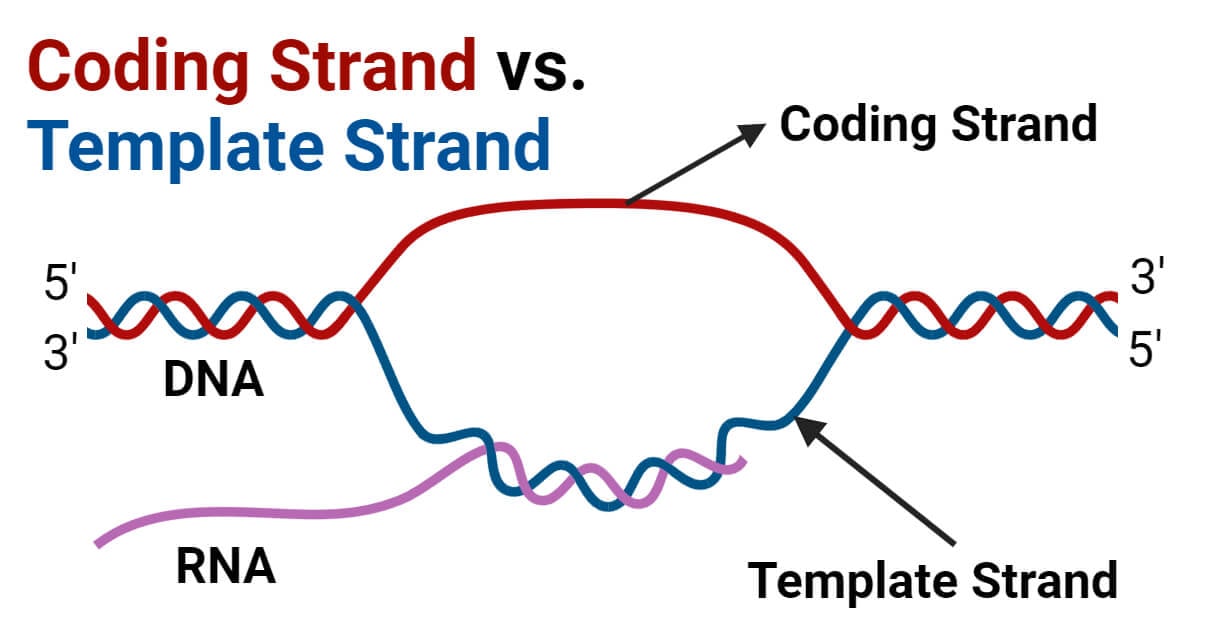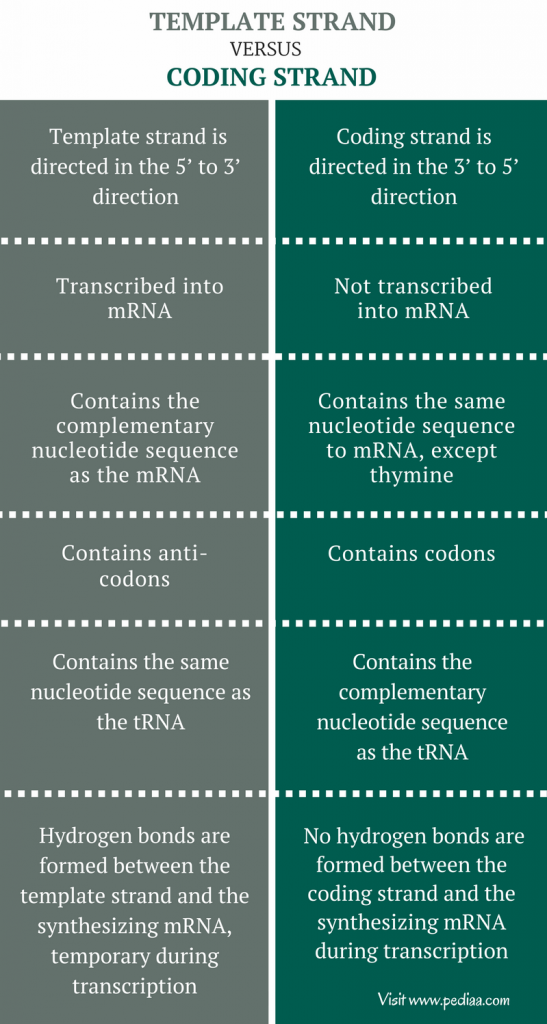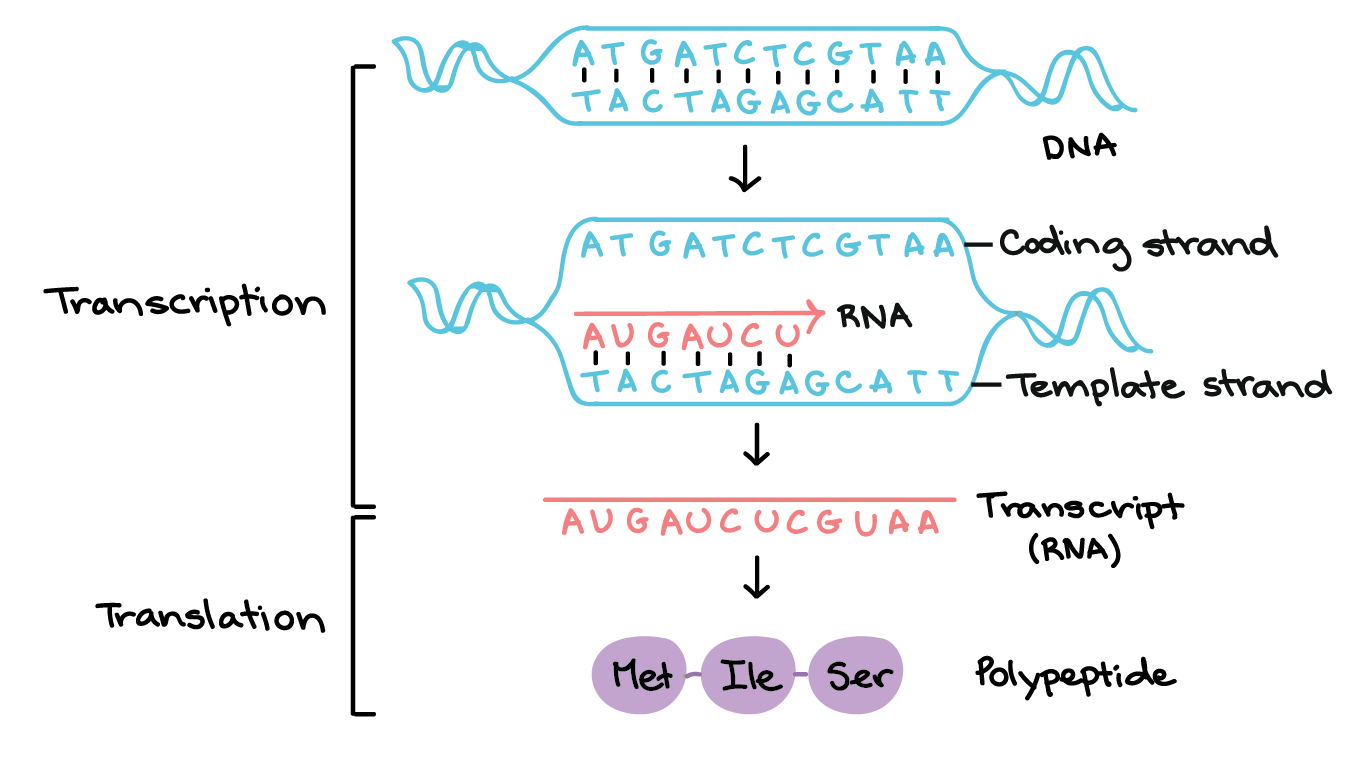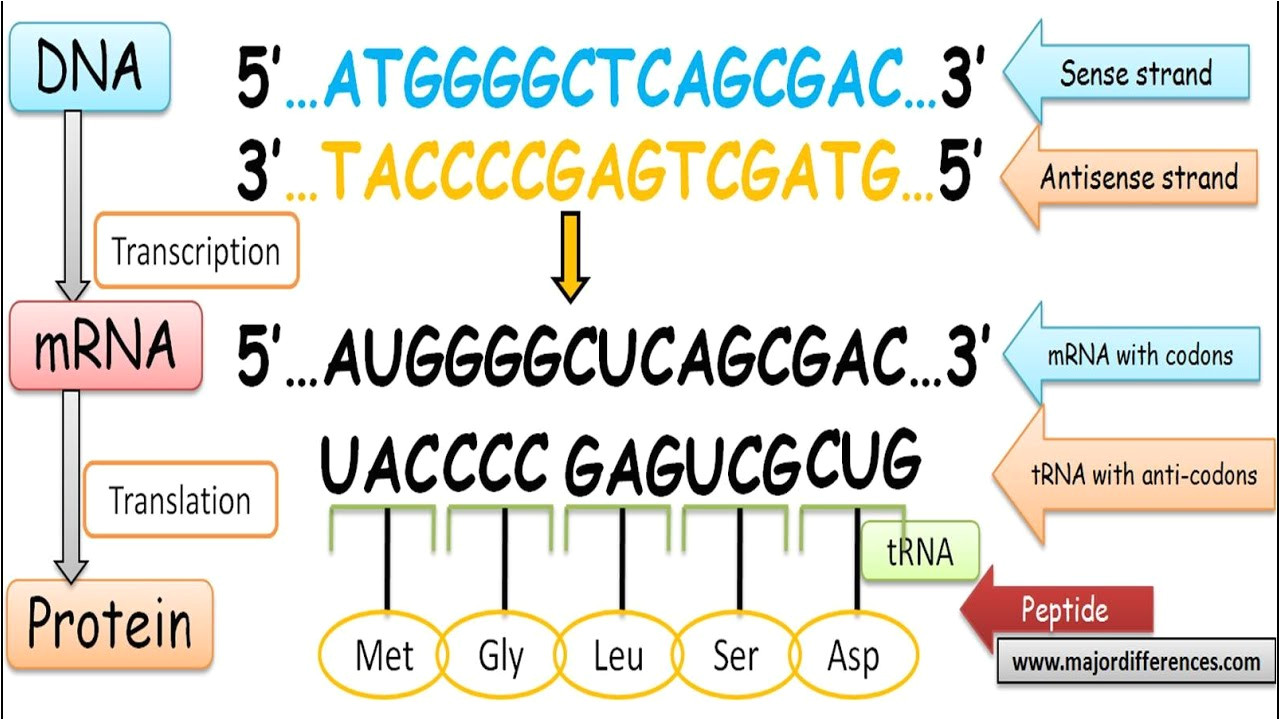Template Vs Coding Strand
Template Vs Coding Strand - Web the dna strand known as the template strand serves as a blueprint for the production of rna, whereas the coding strand is the other strand. Web the coding strand, also known as the sense strand, is the dna strand that has the same sequence as the rna transcript. The other strand, the coding strand, is identical to the rna transcript in sequence, except that it has uracil (u) bases in place of thymine (t) bases. Web the coding strand serves as a template for mrna synthesis during transcription, while the template strand remains unaltered. Web while the template strand is used as a guide to synthesize the rna molecule, the coding strand serves as a reference for the sequence of the resulting protein. Dna’s vital role in genetics. Transcription is performed by enzymes called rna polymerases, which link nucleotides to form an rna strand (using a dna strand as a template). When referring to dna transcription, the coding strand (or informational strand) is the dna strand whose base sequence is identical to the base sequence of the rna transcript produced (although with thymine replaced by uracil). Web in transcription, a region of dna opens up. This template strand is called the noncoding strand. In the realm of genetics, the dna coding strand vs template strand play pivotal roles, collectively serving as the ultimate blueprint for life. The coding strand does not read, but it has the same sequence as mrna. Web the coding strand, also known as the sense strand, is the dna strand that has the same sequence as the rna transcript.. It is important to note that the coding strand is not directly involved in the synthesis of rna or protein, but rather acts as a blueprint for protein synthesis. Therefore, the two strands have complementary roles in both dna replication and gene expression. Rna polymerase reads the template strand to make mrna. In the realm of genetics, the dna coding. Web the difference between template and coding strand is mainly due to the following properties: The template strand goes in one direction, while the coding strand goes in the opposite direction. Web the difference between the template and coding strand of dna is that the template strand contains information for protein synthesis. Web position of the template and coding strands. The template contains anticodons, while coding involves codons. Dna’s vital role in genetics. These two strands work together in a dynamic relationship. Web during gene expression, the template strand is used as a template for mrna synthesis, while the coding strand provides the sequence for the resulting mrna. They work together to ensure accurate synthesis of dna and the production. This template strand is called the noncoding strand. The other strand, the coding strand, is identical to the rna transcript in sequence, except that it has uracil (u) bases in place of thymine (t) bases. Transcription is performed by enzymes called rna polymerases, which link nucleotides to form an rna strand (using a dna strand as a template). In the. The coding strand does not. To understand dna replication, it is vital to recognize that the two strands have opposite orientations. Web the coding strand serves as a template for mrna synthesis during transcription, while the template strand remains unaltered. Web while the template strand is used as a guide to synthesize the rna molecule, the coding strand serves as. They work together to ensure accurate synthesis of dna and the production. These two strands work together in a dynamic relationship. Web the dna strand known as the template strand serves as a blueprint for the production of rna, whereas the coding strand is the other strand. Transcription is the first step in gene expression. Rna polymerase reads the template. This video explain the difference between. In the realm of genetics, the dna coding strand vs template strand play pivotal roles, collectively serving as the ultimate blueprint for life. Web the difference between a template and a coding strand is primarily based on two characteristics: The coding and template strands of a dna structure are separate strands. Learn what is. One strand, the template strand, serves as a template for synthesis of a complementary rna transcript. It is also called the antisense strand. What is the dna template strand? Web in transcription, a region of dna opens up. Dna’s vital role in genetics. Web nicholas idoko 11 min read. Web the coding strand serves as a template for mrna synthesis during transcription, while the template strand remains unaltered. The template strand goes in one direction, while the coding strand goes in the opposite direction. The coding and template strands of a dna structure are separate strands. On the other hand, the template strand,. Web position of the template and coding strands during transcription. The coding strand does not read, but it has the same sequence as mrna. Transcription is the first step in gene expression. The coding and template strands of a dna structure are separate strands. Last updated on september 28, 2023. Web the coding strand provides a reference for the formation of mrna with a similar sequence, while the template strand guides the rna polymerase to synthesize a complementary rna strand. To understand dna replication, it is vital to recognize that the two strands have opposite orientations. There are just a few characteristics and functions that set them different. It is important to note that the coding strand is not directly involved in the synthesis of rna or protein, but rather acts as a blueprint for protein synthesis. Understanding the disparities between these two strands is crucial for comprehending dna processes such as replication and transcription. Dna’s vital role in genetics. Understand that within a single piece of dna, either strand can be used as the template for different genes, but the rna will still be produced from 5’ → 3’. The template strands contain codons that code for amino acids during transcription, while the coding strands do not contain any codons. This way, both strands work together, ensuring the right information is transferred from dna to rna. 37k views 3 years ago topic 5 expression of biological information. Therefore, the two strands have complementary roles in both dna replication and gene expression.
Coding Versus Template Strand During Transcription, Only One Of The Two

Coding Strand vs. Template Strand 6 Key Differences

Difference Between Coding Strand And Template Strand

Template And Coding Strand

Is The Template Strand The Coding Strand

The Template For Rna Synthesis

Template Strand Vs Coding Strand Understanding The Difference GRAPHICOLD

Coding Vs Template Strand Ppt Powerpoint Presentation Professional Grid

Template Strand Coding Strand

Difference Between Template And Coding Strand
The Coding Strand Does Not.
Web The Difference Between Template And Coding Strand Is Mainly Due To The Following Properties:
They Work Together To Ensure Accurate Synthesis Of Dna And The Production.
Web During Gene Expression, The Template Strand Is Used As A Template For Mrna Synthesis, While The Coding Strand Provides The Sequence For The Resulting Mrna.
Related Post: